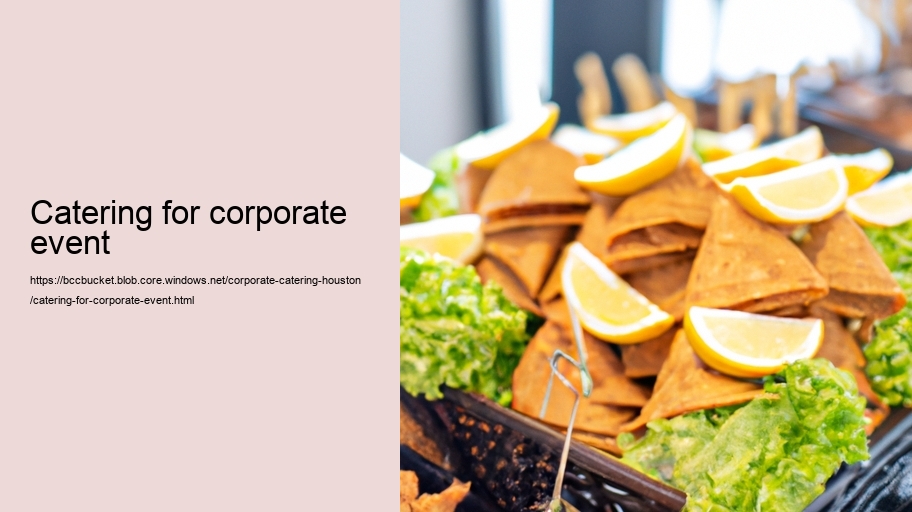Catering for a corporate event is a crucial aspect of any business gathering, as it not only sustains the participants but also reflects the company's brand and attention to detail. The success of such events often hinges on the quality of food and service provided. In this essay, we will delve into the importance of selecting the right caterer, understanding different catering styles suitable for corporate events, and tips for ensuring a seamless culinary experience.
Firstly, choosing the right caterer is paramount. A reputable caterer does more than just prepare food; they contribute to the ambiance and flow of the event. When looking for a catering partner, one must consider their experience with corporate functions. This ensures that they understand the nuances of professional settings—such as timeliness, presentation, and dietary restrictions.
Moreover, communication with your caterer can make or break an event. It is essential to convey your expectations clearly—from menu selection to setup requirements—and equally important is listening to their expert advice. Professional caterers can offer insights into what dishes are popular or practical for large groups and may suggest seasonal or trendy options that could enhance your event.
The type of corporate event dictates the style of catering needed. For instance:
1. **Conferences** typically require meals that are quick to serve and consume so that attendees can return promptly to sessions.
2. **Networking Events** might benefit from hors d'oeuvres or buffet-style setups that encourage mingling among guests.
3. **Galas** often call for formal sit-down dinners with multiple courses to complement the sophisticated atmosphere.
4. **Team Building Retreats** could be an excellent opportunity for interactive food stations where colleagues participate in making part of their meal.
Understanding these needs allows you to customize menus accordingly while considering dietary restrictions such as vegetarian, vegan, gluten-free options which are increasingly important in today’s diverse workforce.
When planning a menu, balance is key—offering a variety of proteins, starches, vegetables, and salads not only caters to different preferences but also provides nutritional balance necessary for maintaining energy levels throughout long events.
Presentation should never be underestimated; it contributes significantly towards first impressions at any corporate function. Caterers who prioritize aesthetics through high-quality serveware and thoughtful arrangement elevate the dining experience substantially.
In addition to food-related considerations:
- Ensure there's adequate staffing based on guest count so that service runs smoothly without long queues or empty platters lingering around.
- Discuss logistics beforehand: delivery times must sync with your schedule; equipment like chafing dishes should be accounted for if there's no kitchen on-site.
- Finally yet importantly: sustainability practices are becoming more common in corporate settings—opting for local produce or eco-friendly disposables sends a message about your company’s values.
To conclude, successful catering at corporate events involves careful planning and collaboration between organizers and caterers alike. It requires meticulous attention from initial consultations till post-event cleanup ensuring every aspect aligns with both practical needs as well as aesthetic aspirations reflective of one’s brand identity within budgetary constraints without compromising quality or guest satisfaction—a tall order indeed but attainable with dedication towards excellence signifying true hospitality beyond mere sustenance!
